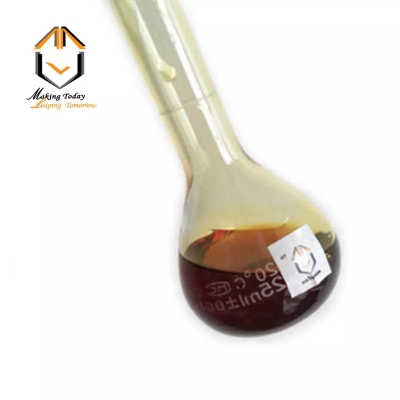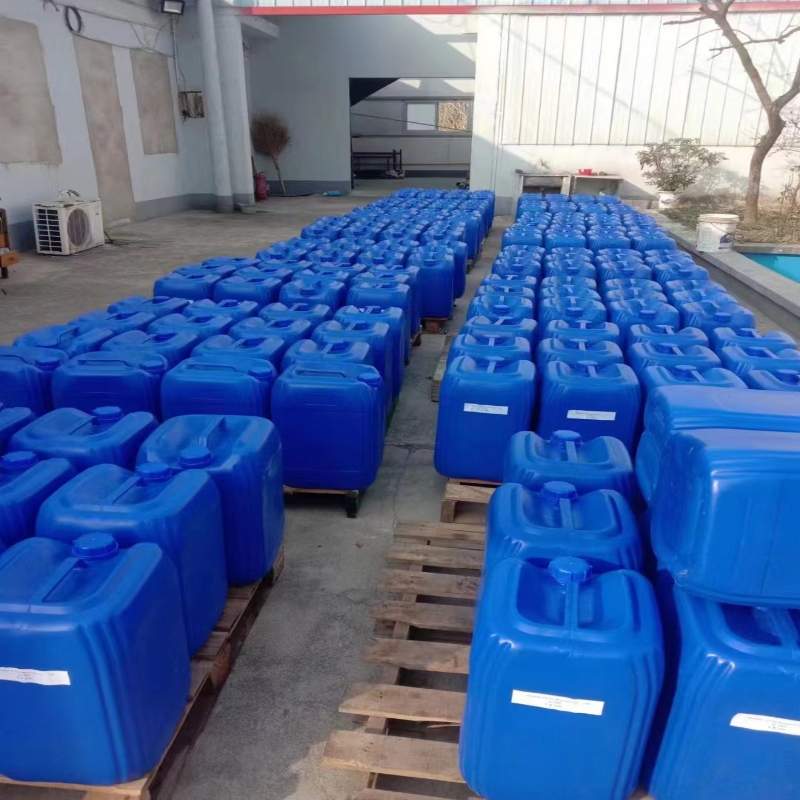-
Categories
-
Pharmaceutical Intermediates
-
Active Pharmaceutical Ingredients
-
Food Additives
- Industrial Coatings
- Agrochemicals
- Dyes and Pigments
- Surfactant
- Flavors and Fragrances
- Chemical Reagents
- Catalyst and Auxiliary
- Natural Products
- Inorganic Chemistry
-
Organic Chemistry
-
Biochemical Engineering
- Analytical Chemistry
-
Cosmetic Ingredient
- Water Treatment Chemical
-
Pharmaceutical Intermediates
Promotion
ECHEMI Mall
Wholesale
Weekly Price
Exhibition
News
-
Trade Service
After multiple rounds of sanctions against Russia by the West, Russia's traditional trade channels with the international energy market have encountered huge obstacles
.
However, behind the "Energy Iron Curtain", the huge market demand and the lure of income brought by Russia's discounted oil have made many unknown Western energy traders "desperate" to undertake Russian oil transportation business
.
Russia's "Izvestia" quoted experts as saying on the 7th that Europe refuses to import oil from Russia, but there is still a huge demand for energy, which makes some trading companies get "crazy profits"
.
Small and medium-sized traders are very popular
"Now shipping a ship of Russian oil can make at least $20 million!" A report in the Wall Street Journal at the end of May revealed that with the escalation of Western sanctions, international commodity giants have gradually withdrawn from the Russian oil transportation market, but the move has caused a large number of previously unknown small and medium-sized commodity traders to intervene in the crude oil shipping business and profit
from it.
The Wall Street Journal cites as an example of previously unknown small businesses such as Paramount Energy and Coral Energy, which are the beneficiaries of this trend, buying Russian oil
at "extremely favorable" discounts.
Depending on the size of the tanker, each shipment of Russian oil can make a profit of $20 million or more, which is tens of times
higher than the profit of $600,000 transported in a single trip before the Russian-Ukrainian conflict.
And these traders have not violated Western sanctions
against Russia.
Russia is also in great need of such energy traders
.
Since the EU prohibits doing business with Rosneft, Switzerland has also enacted restrictions
.
This has led to the withdrawal of Western energy trading giants such as Trafigura Group and Glencore, which were originally important in the energy trade with Russia
.
Therefore, the Russian side not only significantly lowered the price of oil sold to traders, but also lowered the qualification requirements
for traders.
Coral Energy executives disclosed that companies now do not even need to obtain payment guarantees
from banks in connection with their dealings with the Russians.
According to the Wall Street Journal, Geneva-based Paramount Energy is a commodities trading company
founded by Dutch businessmen.
According to Petro-Logistics, an energy data analyst agency, the company has traded an average of 163,000 barrels of crude oil
per day since the end of February.
People familiar with the matter said the company is strengthening its operations in Dubai with the aim of avoiding European sanctions
to the maximum.
Paramount Energy buys oil from independent companies under long-term contracts signed before the Russian-Ukrainian conflict, and one of its energy suppliers, Concept Oil Services, a Hong Kong-based company responsible for buying oil from Russian energy producers and then selling it to Paramount, is not a violation of Western sanctions against
Russia.
But in the future, if the West imposes tougher sanctions on Russia's oil industry, or financial companies and shipowners stop operating Russian energy companies, the above transaction may be very risky
.
Multinational fleets participate in maritime transport
"Trade companies in some countries operate Russian oil through 'hide-and-seek' to circumvent Western sanctions
.
" Germany's "Bild" said on June 2 that Russia's crude oil exports are once again close to pre-war levels, recently exporting 8.
1 million barrels per day, almost at the level
before the outbreak of the Russian-Ukrainian conflict.
India, in particular, is becoming the center
of a new oil operation.
According to commodity market data firm Kpler, India now imports 800,000 barrels of oil
per day.
Indian giant Reliance Industries buys seven times as much oil from Russia as it used to, and refined petroleum products are subsequently exported around the world — including the United States
.
Since March, ship traffic from India to Europe has increased by 1/3 and to the United States by 43%.
Industry experts point out that in Europe, Germany has reduced Russian oil imports, but the Netherlands, Italy and Greece have obtained more
Russian oil than before the Russian-Ukrainian conflict.
Turkey, Japan and South Korea have also increased Russian oil imports
.
Germany's "Le Monde" said that Russia is leasing Greek tankers to circumvent sanctions
.
According to Britain's Lloyd's Register of Shipping, 190 tankers refueled in April at the Russian oil ports of Primorsk, Novorossiysk, Ustyruga and St.
Petersburg, 76 of which sailed
under the Greek flag.
Greece's share of Russian oil transportation has almost tripled
compared to last year.
"The amount of oil imported by European tankers from Russia in May almost doubled" The Russian newspaper reported on the 7th that the effectiveness of EU sanctions on Russian oil is very questionable, because since February 24, European companies have doubled
their shipments of Russian oil.
Companies from Greece, Malta and Cyprus make the most
profits.
In February, companies and ships associated with these countries carried 31 million barrels of oil
from Russia.
In May, that number increased to 58 million barrels
.
Louis Goddard, a senior adviser at Global Witness, said the oil tankers in Greece, Malta and Cyprus had "mocked" the EU's sanctions attempts
.
While European media did not specify whether local energy companies are involved in such deals, it is clear that oil imports are closely linked to companies in Europe's energy supply chain
.
Some analysts pointed out that on the one hand, the import of Russian oil is about 1/3 lower than the international market price, on the other hand, the energy prices of European countries have increased
significantly compared with the past.
Therefore, many traders are willing to take risks
.
"Transaction loopholes" are exploited
Russian vesti TV reported on the 4th that the European Union imposed restrictions on Russian oil, and could not find other sources of oil, so it can only continue to import Russian oil
through "gray imports".
Alexander Frolov, deputy director of the Russian National Energy Research Institute, said that this "gray import" is operating
at full capacity.
Klay Lowry, deputy director of the Institute of International Finance, predicts that cash receipts from Russian oil exports will reach an unprecedented $250 billion
in 2022.
In the oil market, some European oil transportation companies claim to be transporting "a mixture of oil from certain countries", but the truth is: they use Russian Urals oil to mix with oil from other countries, which gives birth to a completely different energy product
.
They are generally labeled as "Malaysian" or "Singapore Blended" oils
.
Another sanction-circumvention technique is the transshipment
of oil in international waters.
Some tankers carrying Russian crude oil turned off GPS launchers, blurring route positioning
.
In May, the practice became common: according to estimates by British analyst firm Windward, the number of tankers loaded with Russian oil, turned off transponders and hid their locations averaged 6 per day
.
As of early June, 112 Russian-linked tankers had not sent signals
to the automatic identification system for more than eight weeks.
Due to rising international oil prices, this mode of transportation has allowed oil transporters in some Western countries to obtain high profits
.
Europe is also happy to see these "deal loopholes" because they help secure oil supplies
.
The report released by Goldman Sachs on June 7 believes that the structural deficit of global oil remains unresolved and oil prices will rise further, with Goldman Sachs expecting Brent crude oil prices to be $140 per barrel in the third quarter of 2022, compared with the previous forecast of $125; Expected to be $130 in the fourth quarter, compared to $125 previously expected; It is expected to be $
130 in the first quarter of 2023.
Russia's ItiCapital Network reports that there are many
traders who want to buy Russian oil at a cheaper price and sell it at market prices.
European users, of course, will eventually be forced to pay
for high-priced oil.
Any blow by the West to Russian oil will lead to higher
prices on the world market.
In a way, the more Western restrictions on Russian oil, the more favorable
it is to Russia's energy trade.







